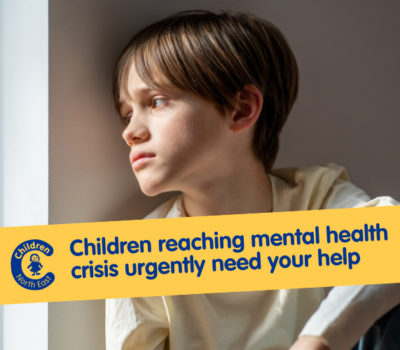What is Poverty Proofing the School Day?
Poverty Proofing the School Day is a National Programme we have been running at Children North East since 2014. We developed Poverty Proofing the School Day after a consultation with children and young people. We gave out disposable cameras to young people and asked them to take pictures of what poverty looked like to them in their communities. The young people who took part sent us eleven thousand photographs in total, which highlighted the ways that poverty affected their lives. As a charity that is committed to listening to the voice of children and young people, we asked them how best to respond.
“The answer was clear – for children living in poverty the place where it was most challenging to be poor was at school.”
What does Poverty Proofing the School Day mean?
We felt strongly that it was our duty to make sure costs associated with school do not make things worse for families already struggling to keep their head above water, and that children should not miss out on school activities and experiences because of money. We are also aware that children can routinely face unintentional stigma and discrimination as a result of poverty. After the initial consultation, we spoke with children, young people, parents and school leaders in four schools in the North East, and the result was the Poverty Proofing the School Day audits that we now deliver in schools across England.
Audits involve speaking to every single child in the school, as well as staff, parents and governors, to identify what the school is already doing well to support children and families living in poverty and, more importantly, what the school could do differently or better to ensure that there is a level playing field. After speaking to all of the children, we present our findings to the school’s senior leaders, sharing the invaluable feedback from their pupils and discussing specific changes they can make to help their poorest children. At the heart of this process is an understanding that poverty affects children and communities differently which is why the voice of every child in any individual school is integral to this work. We are also aware that schools have the power to eliminate these challenges through structural changes to the school day.
“How powerful that the voice and experience of a child can positively influence the decisions of senior leaders!”
Poverty barriers across a range of spaces and activities
Too often in schools, children living in poverty are unintentionally stigmatised, discriminated against, left out or excluded. In our experience this happens across a wide range of everyday spaces and activities in schools: from children in the playground who have a fantastic collection of trading cards while others don’t, to children comparing the branding of their newest bag or shoes between lessons. It extends to school trips where some children are excluded because of the cost, or unable to pick something up from the gift shop on the way out even when they can afford to go. It also reaches to the heart of the classroom, where students are publically given letters about their family’s dinner money debt or forced to put their hand up and declare to the whole class that, as usual, they’ll be on Free School Meals this week. We have also learned that pupils can be given a detention for not being able to afford stationery or ingredients for food technology lessons, which then makes them miss the school bus when there is no alternative way of getting home.
The audit is a powerful experience which puts the voice of children at the centre, and which encourages schools to think creatively and differently about how to respond to the issues children have raised. Ultimately, our aim is not to point out problems, but to work collaboratively with schools to ensure that children in poverty don’t miss out on the education or experiences they are entitled to.
“To date we have worked with 59,599 pupils in 129 schools in the North East and 58,903 pupils in 117 schools elsewhere in England, and these figures are growing every week.”
Listening more closely to the voices of children
We’re very excited about the opportunity to work with Child Poverty Action Group on the UK Cost of the School Day project and build on the impactful work both our organisations have already done. We know that Poverty Proofing and the Cost of the School Day are projects which can positively change the way our most vulnerable children experience school. At a time when increasing numbers of families are struggling to stay afloat it’s our duty, and the duty of our schools, to ensure that we are responding to the issue of poverty with compassion and kindness. We can only do this if we listen more closely to the voices of children and place their experiences of the school day at the very heart of policy and practice.
A bit of history…
Children North East was founded in 1891 by two local philanthropists who were concerned about the health of poor children living in Newcastle city centre at the time. The beginnings were relatively modest; they organised day trips by boat down the River Tyne to the seaside at Tynemouth where the air was cleaner and they provided shoes and food for the city’s young people. Well over a century on, growing up continues to be hard and Children North East continues to support families and young people in the region to ensure they grow up to be healthy and happy. We now have 21 different projects to support babies, children, young people and their families and remain committed to ensuring that we are championing equality and tackling disadvantage.
-Georgina Burt



















